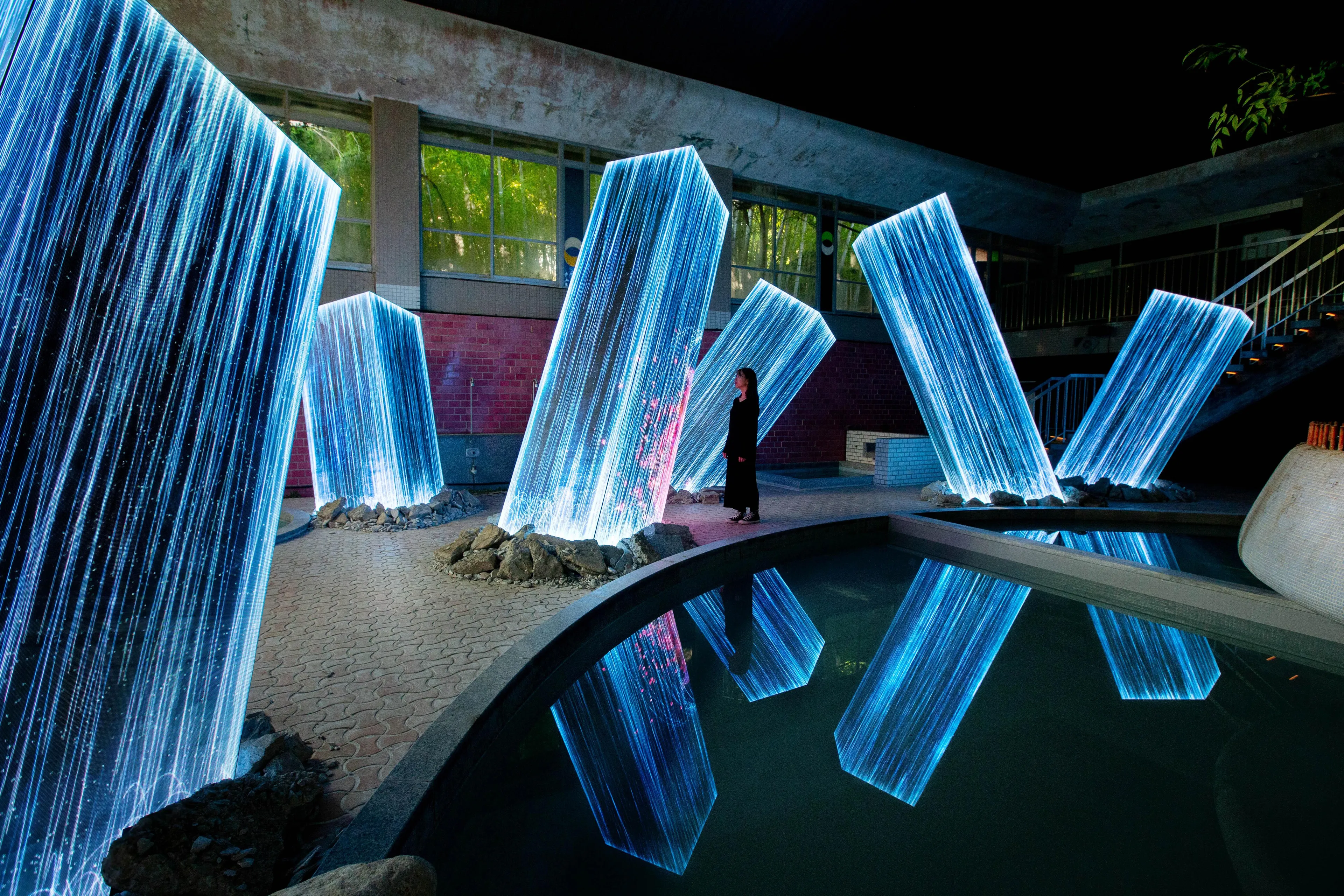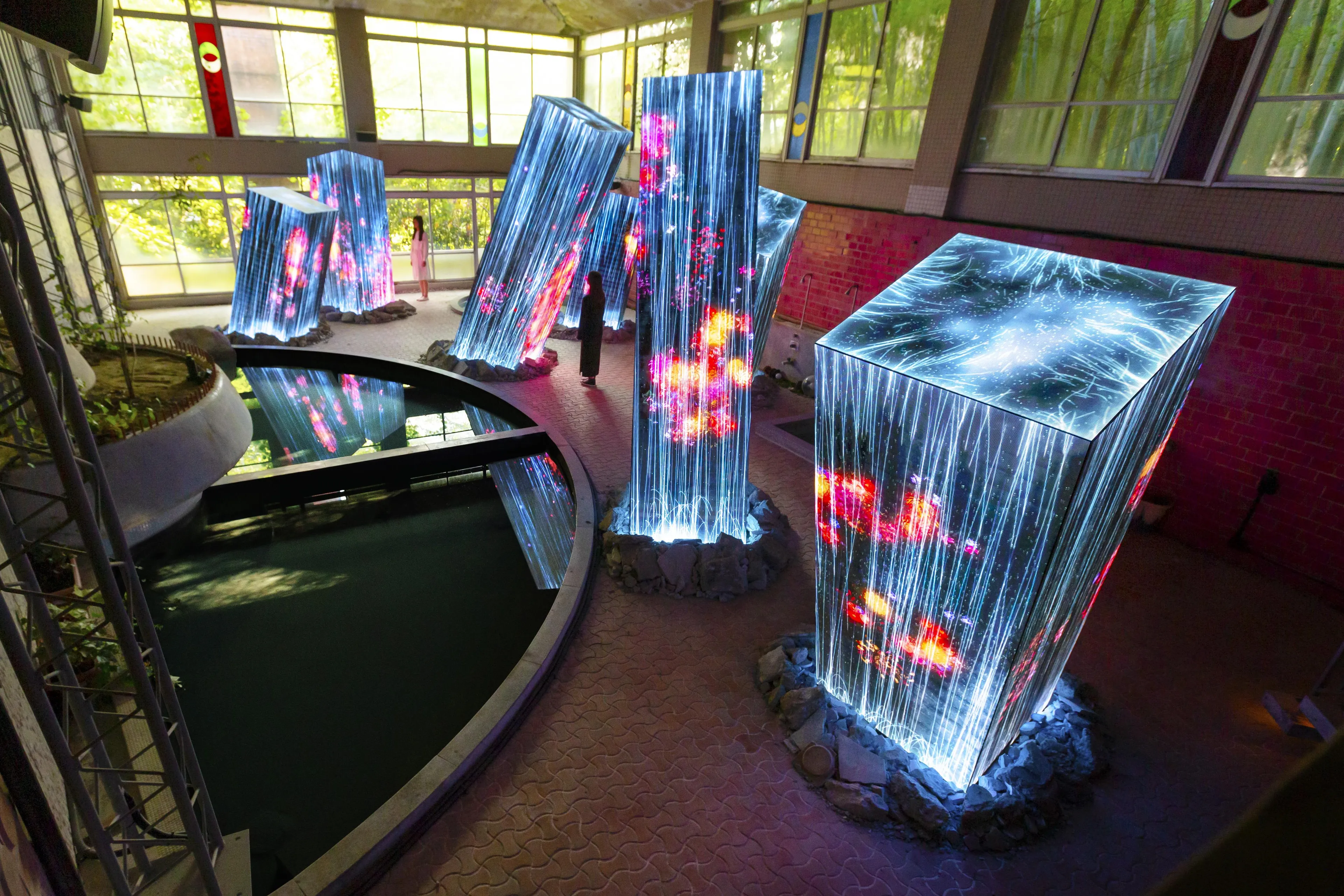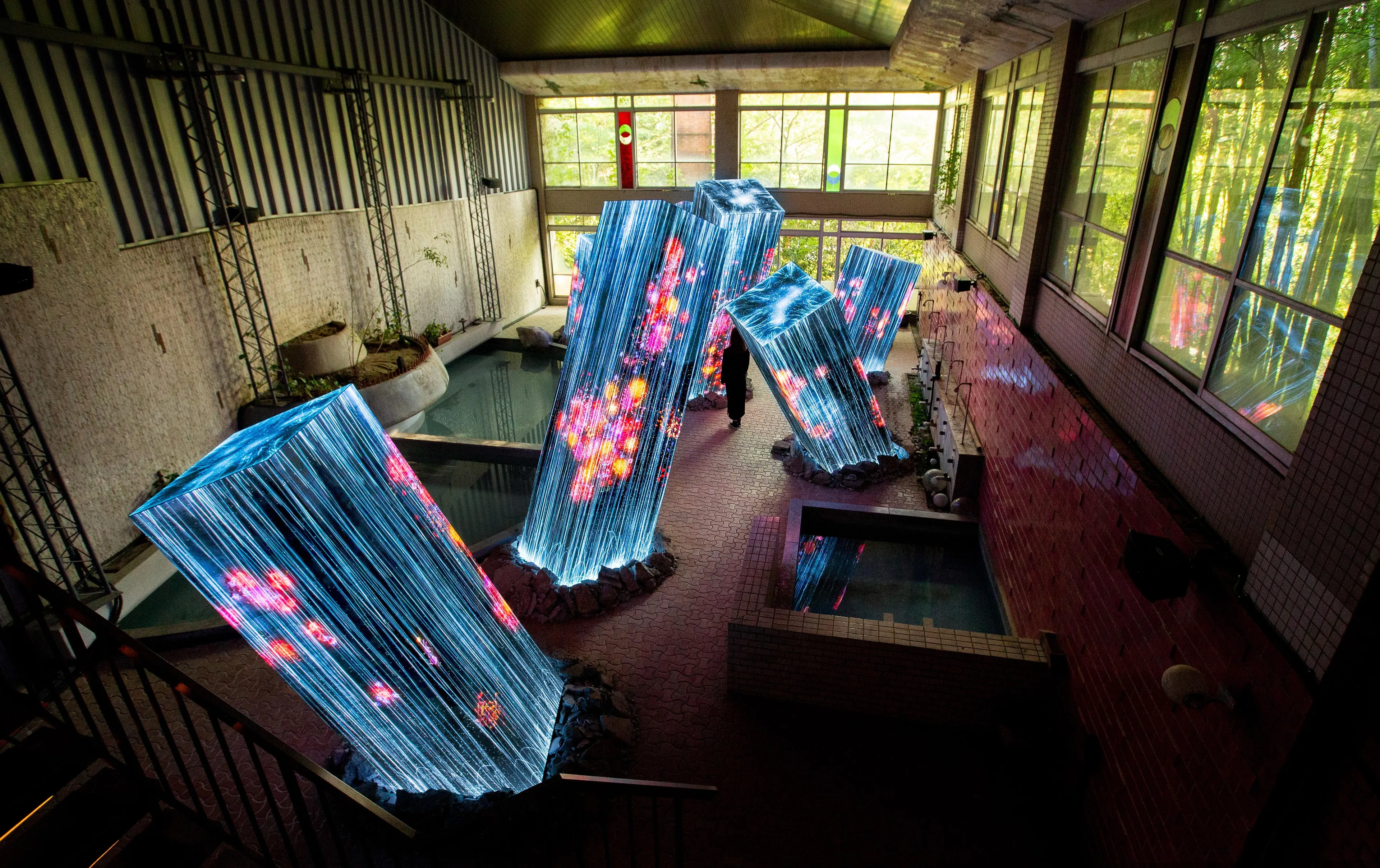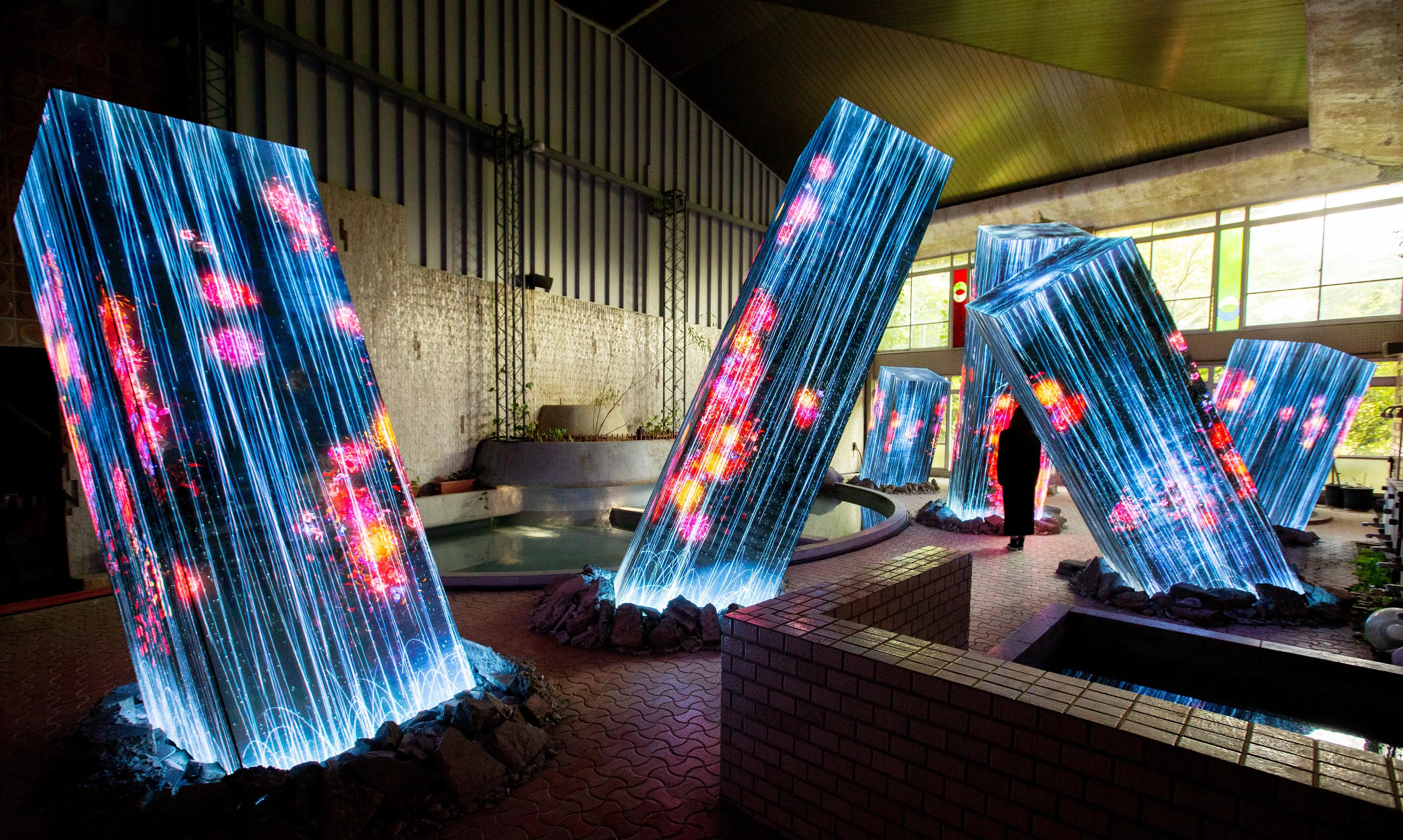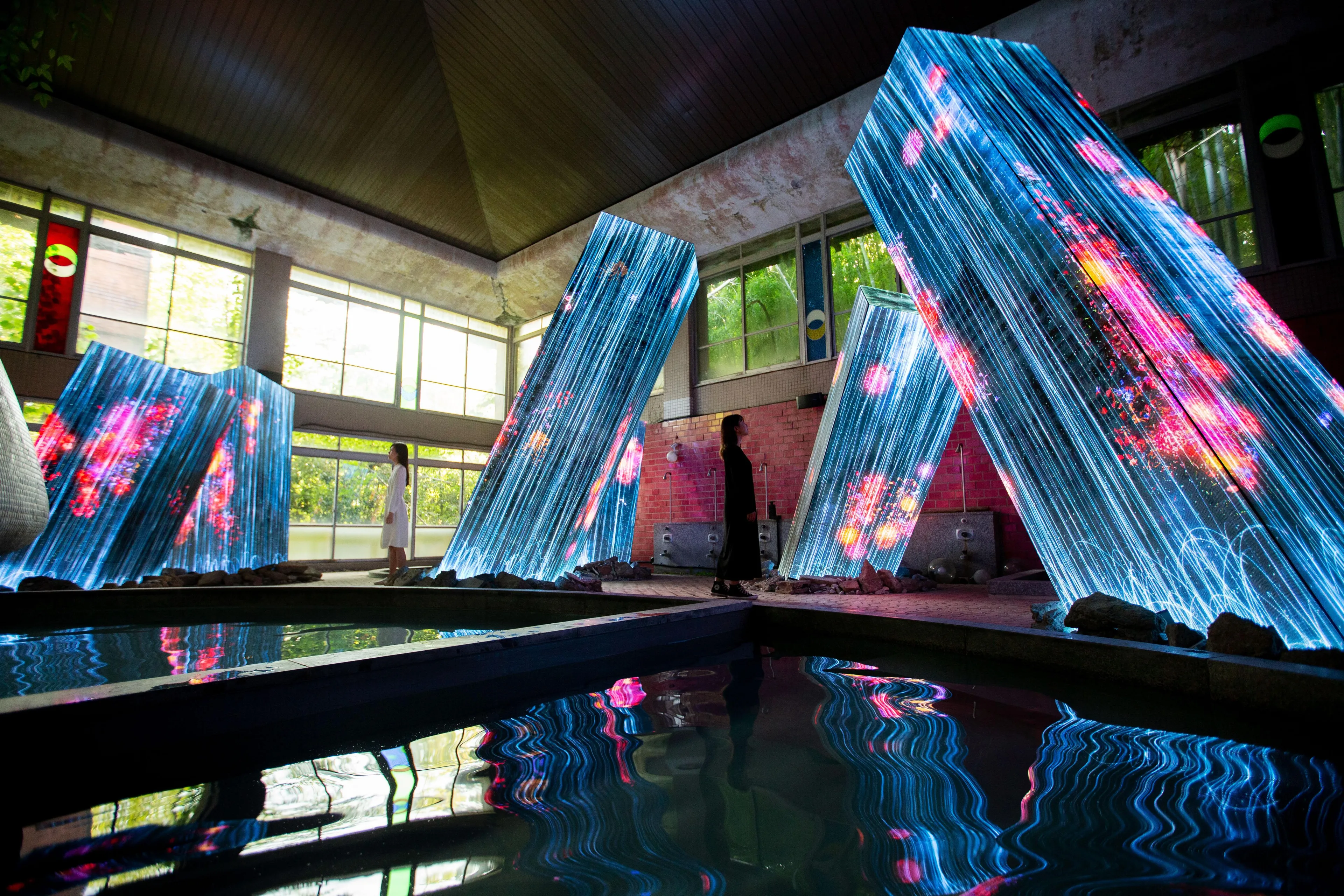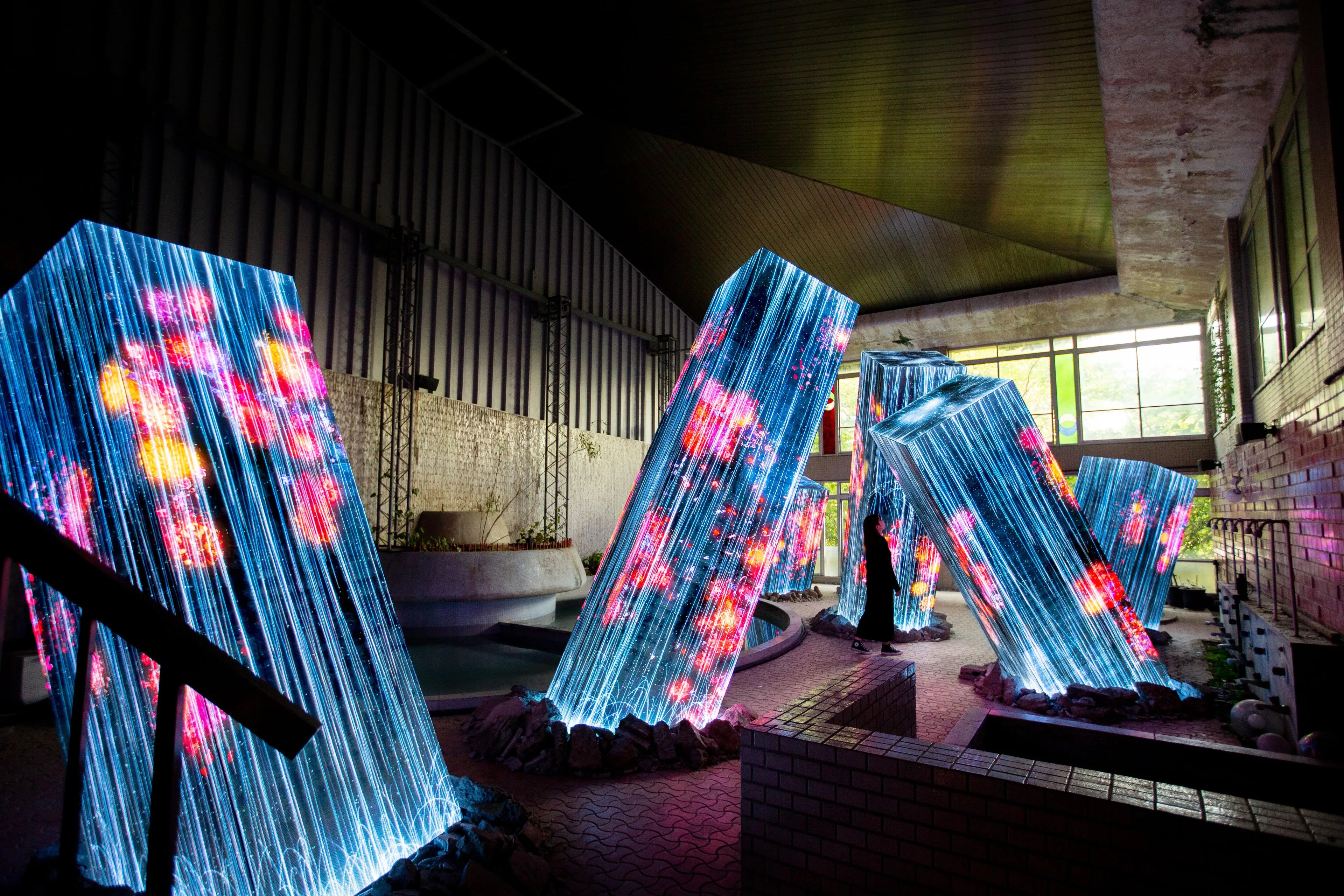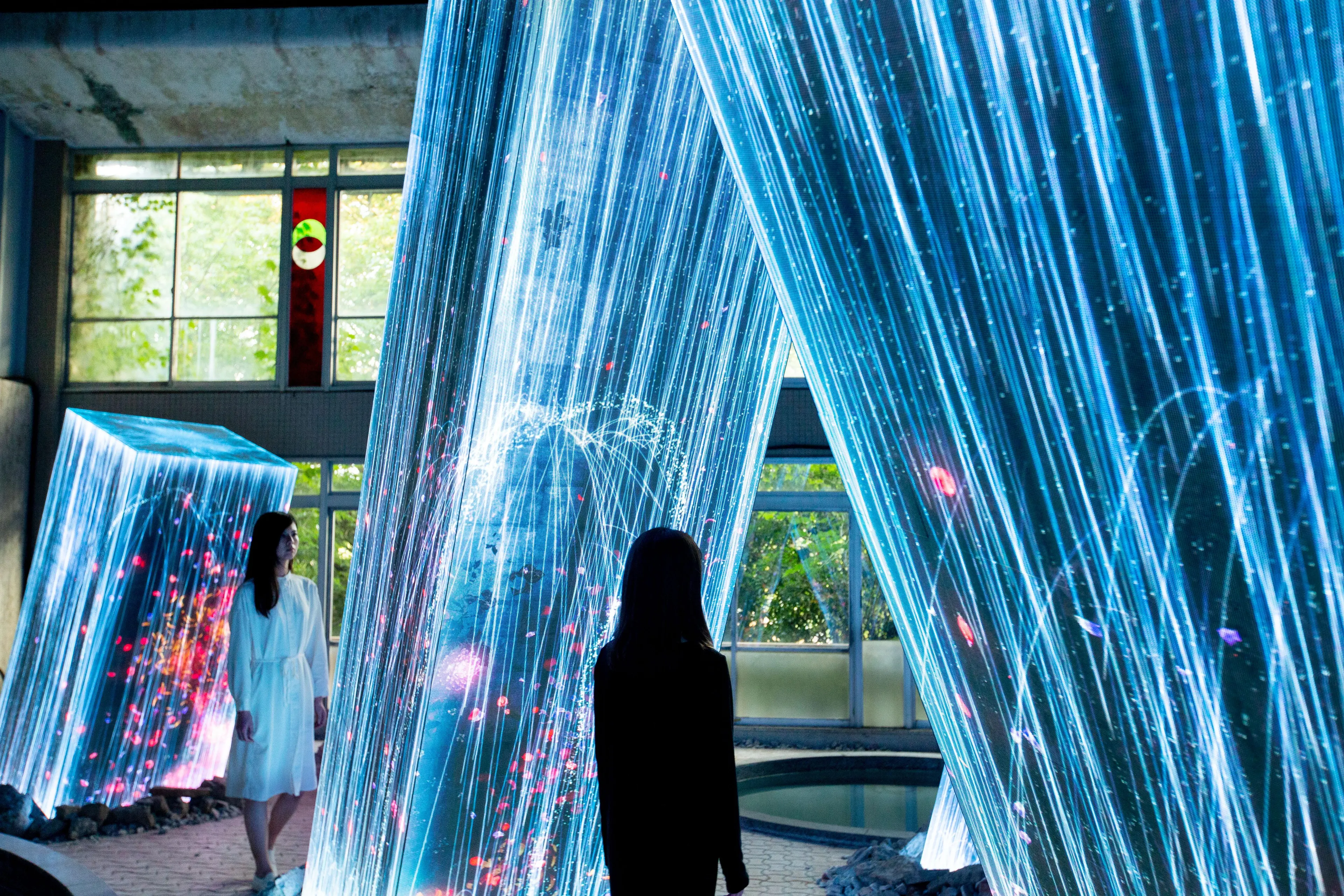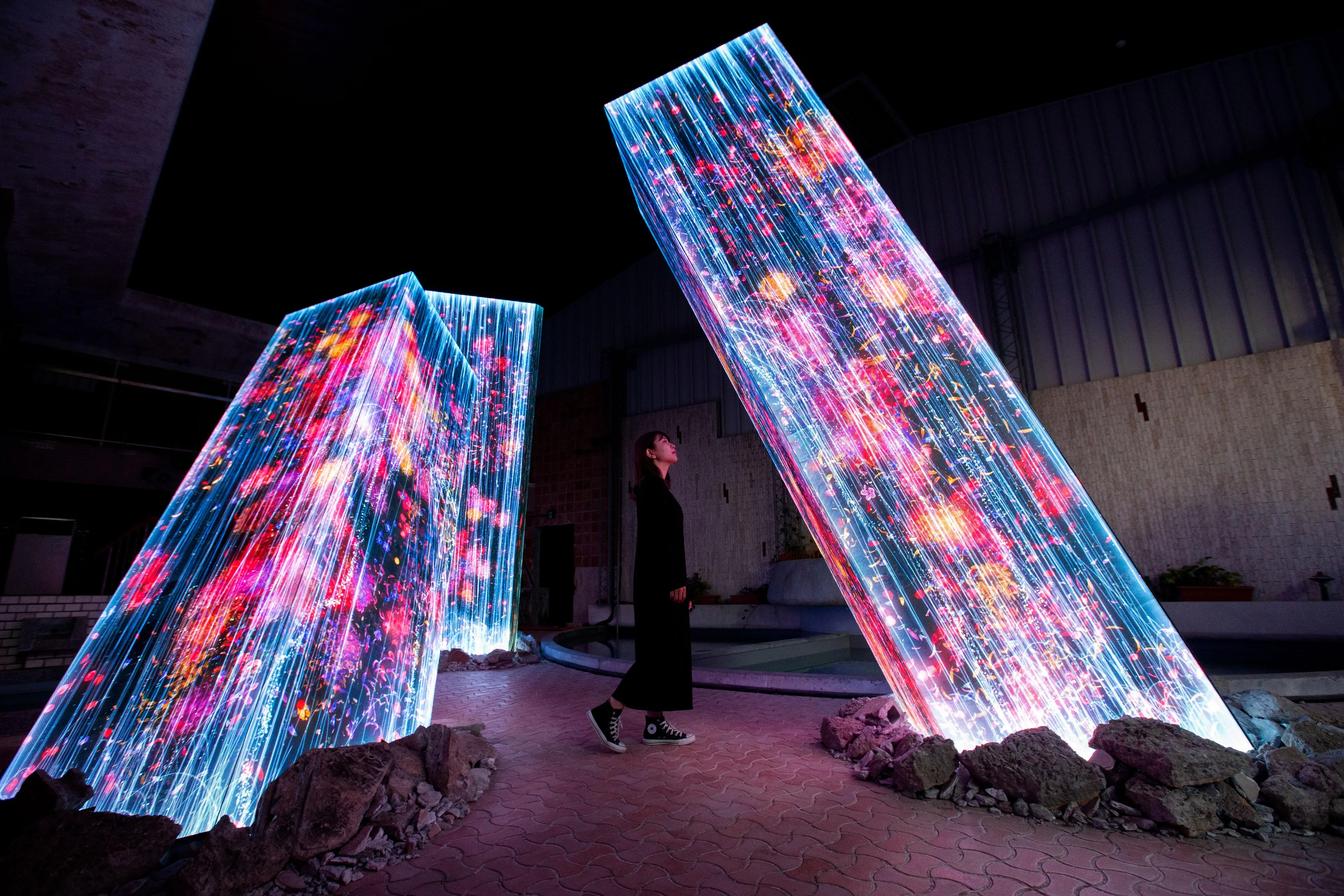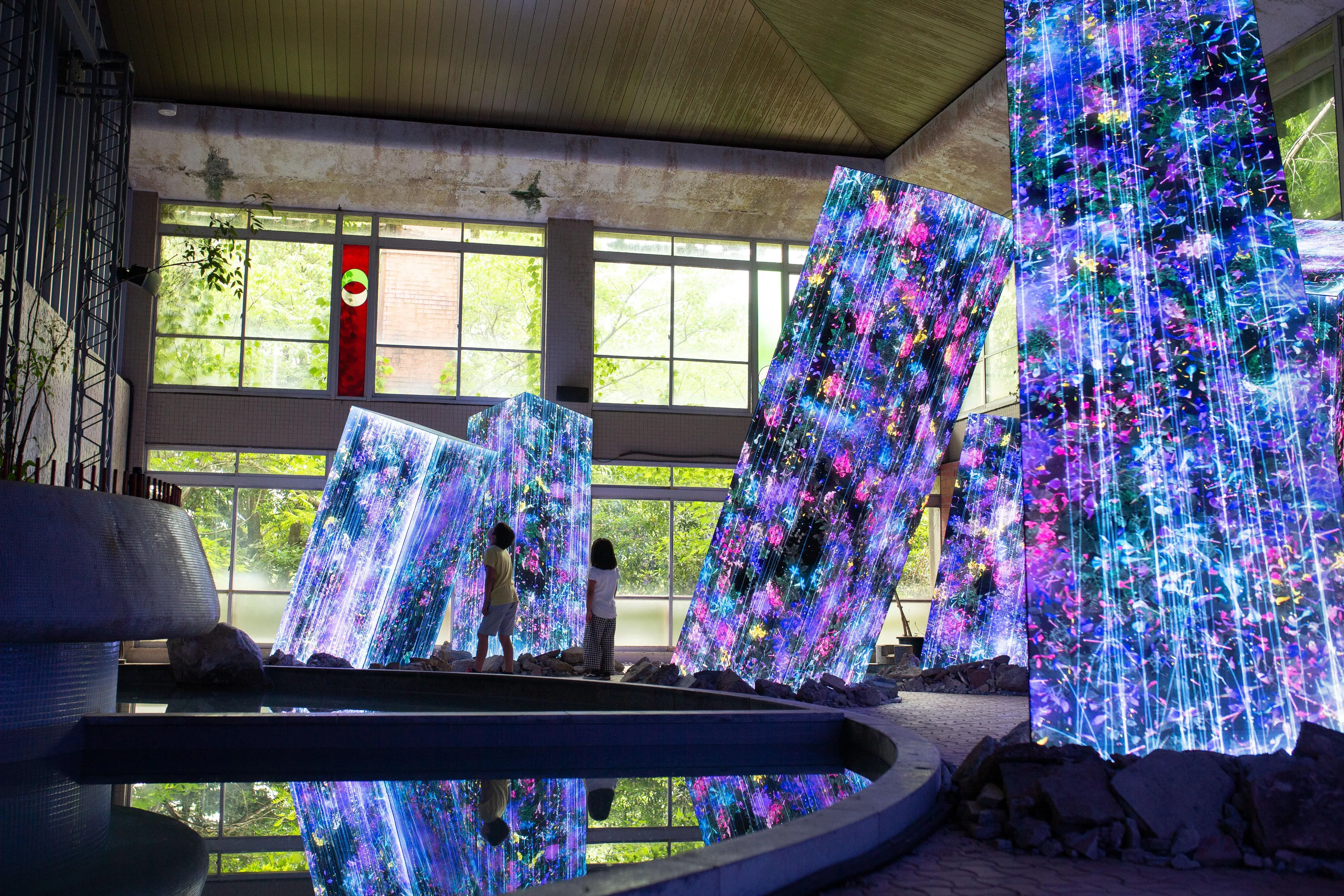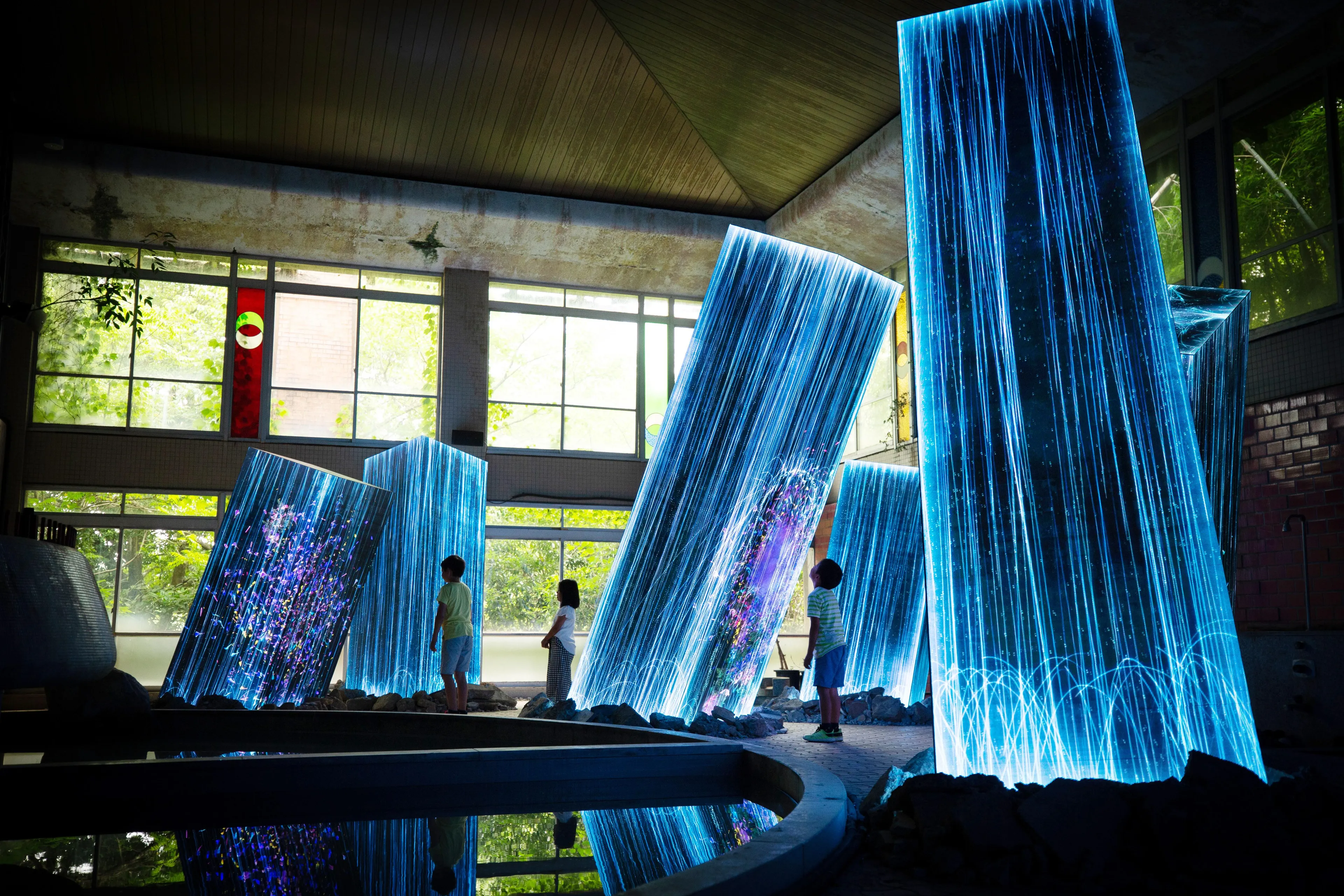Megaliths in the Bath House Ruins
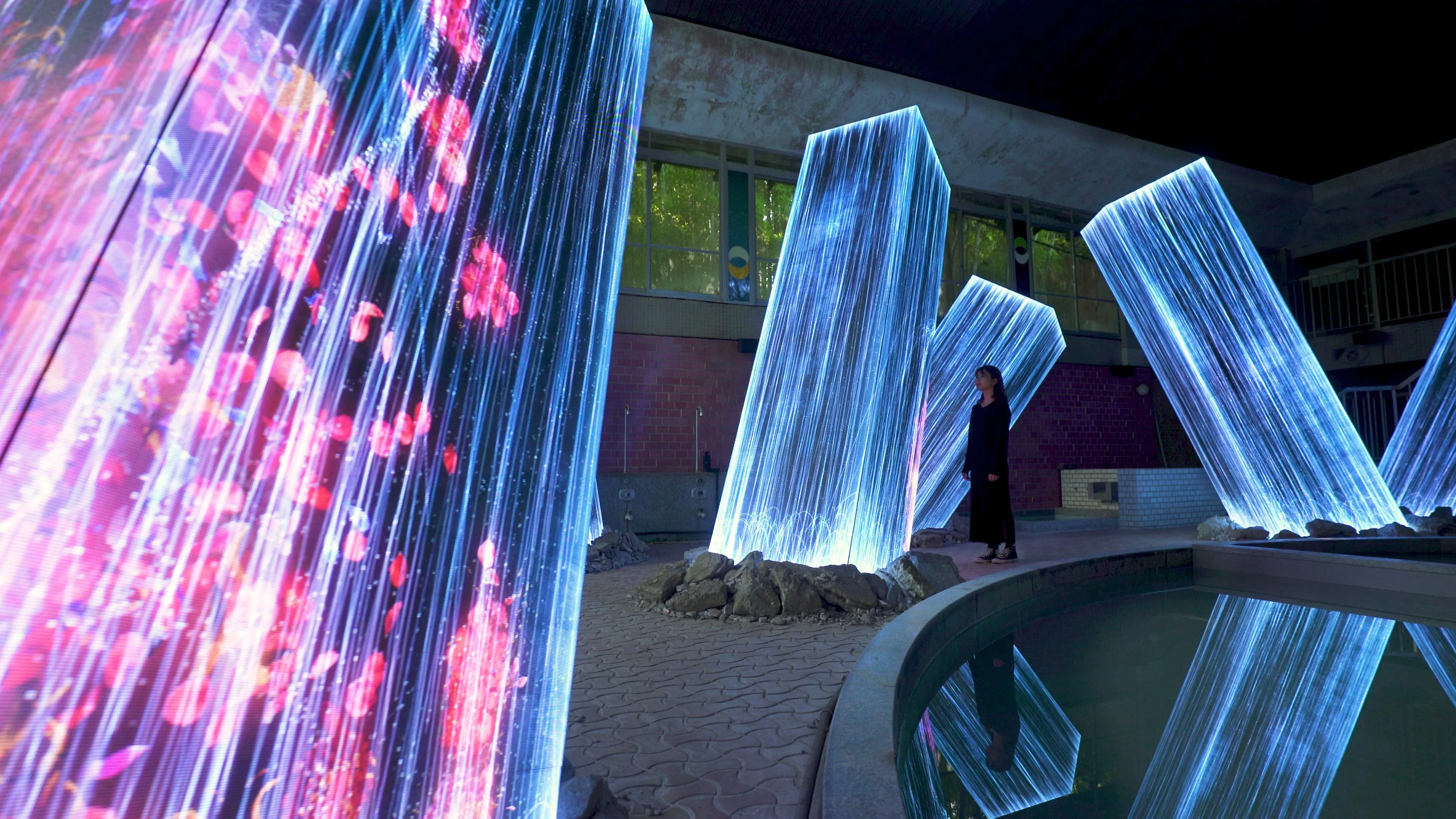
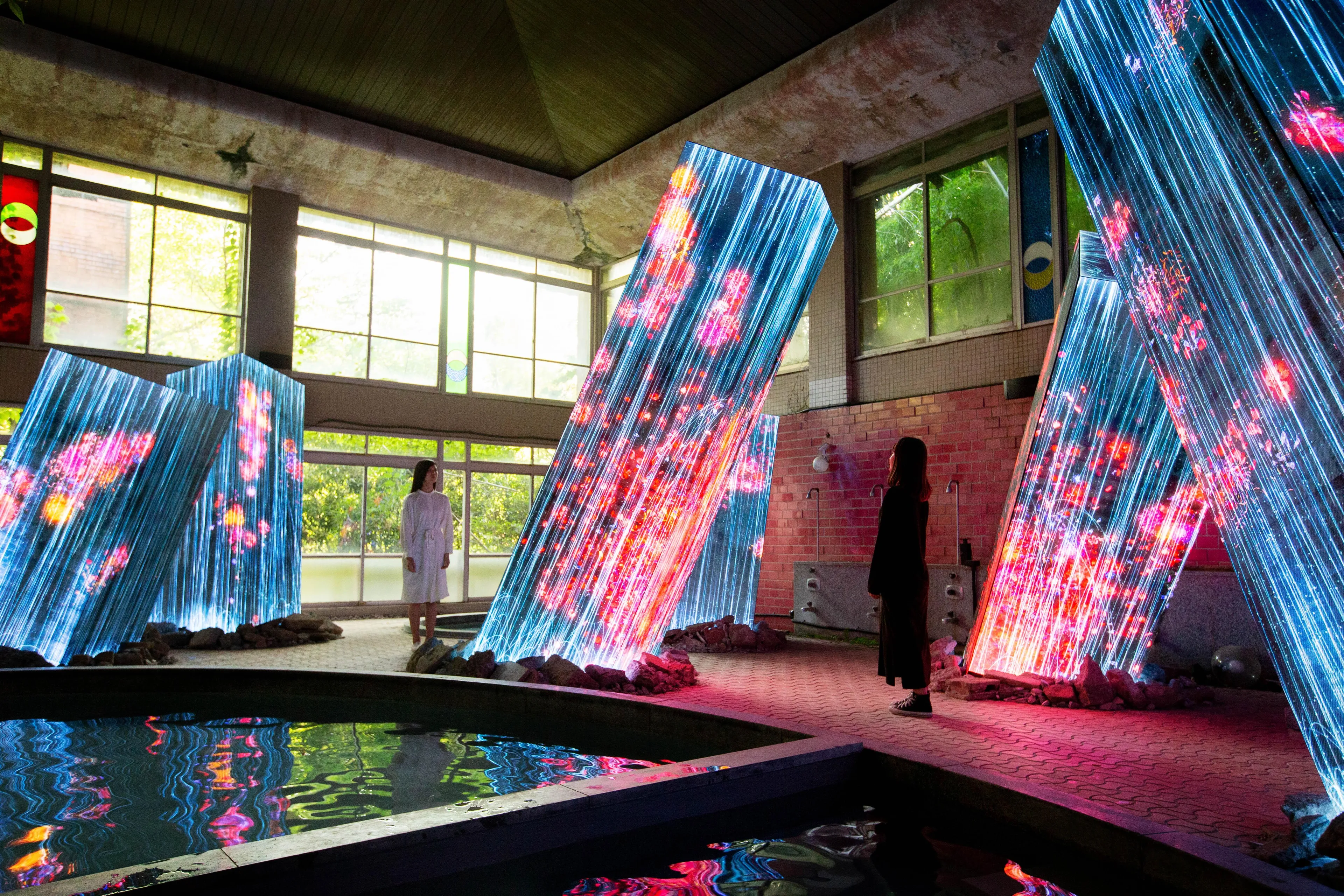
Megaliths in the Bath House Ruins
Masses (Megaliths) of different space-times are clustered in the bath house ruins.
The forest surrounding the bath house ruins is home to 3,000-year-old trees, and it changes daily with the imperceptible, slow flow of time, repeating every year, as a space where the endlessly long time accumulates. The ruins from ages past scattered in the forest and the Edo-period garden which remains today each have their own respective space-times. The bath house was made in modern times, but after just a short period, it was abandoned, becoming a space-time where time had stopped completely. And this group of megaliths is also a mass made up of compressed space-times where the flow of time varies. Here, various space-times intersect and overlap.
Each megalith is surrounded by similarly standing megaliths, the space-times of which are all connected.
The artwork is continuously rendered in real time by a computer program. It is neither prerecorded, nor on loop. As a whole, previous states never recur, and the artwork is continuously changing due to the movement of people. Every moment is unique and can never be seen again.
The following artworks exist in the artwork space of the three-dimensional objects grouped in these bath house ruins.
・Flowers and People
This artwork is in a state of continuous change. Over a period of one hour, a year’s worth of seasonal flowers blossoms and scatters. The flowers bud, grow, and blossom before their petals begin to wither and eventually fade away. The cycle of growth and decay repeats itself in perpetuity. If a person stays still, the flowers surrounding them grow and bloom more abundantly.
・Universe of Water Particles
When people approach the artwork, the flow of the water changes. The movement of people influences the artwork, causing it to evolve continuously, while the artwork influences other works. For instance, the water causes the flowers in the work Flowers and People to scatter.Water is represented by a continuum of numerous water particles. The interaction between the particles is calculated and then lines are drawn in relation to the behavior of the water particles. The lines are “flattened” using what teamLab considers to be ultrasubjective space.
